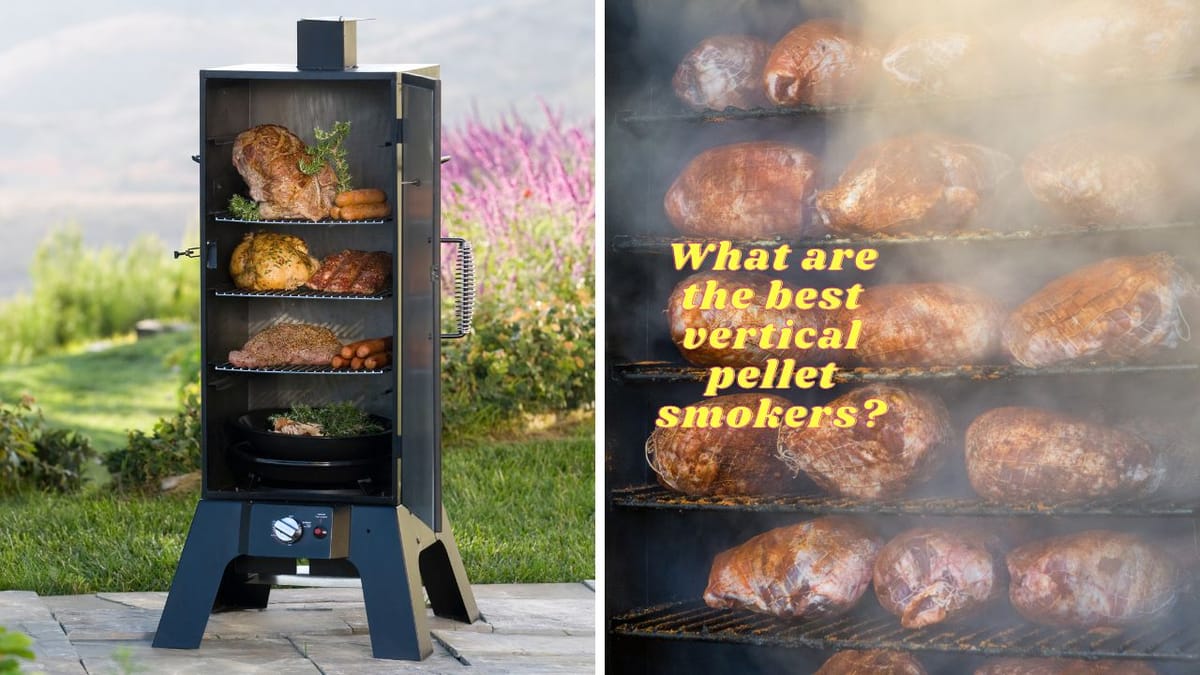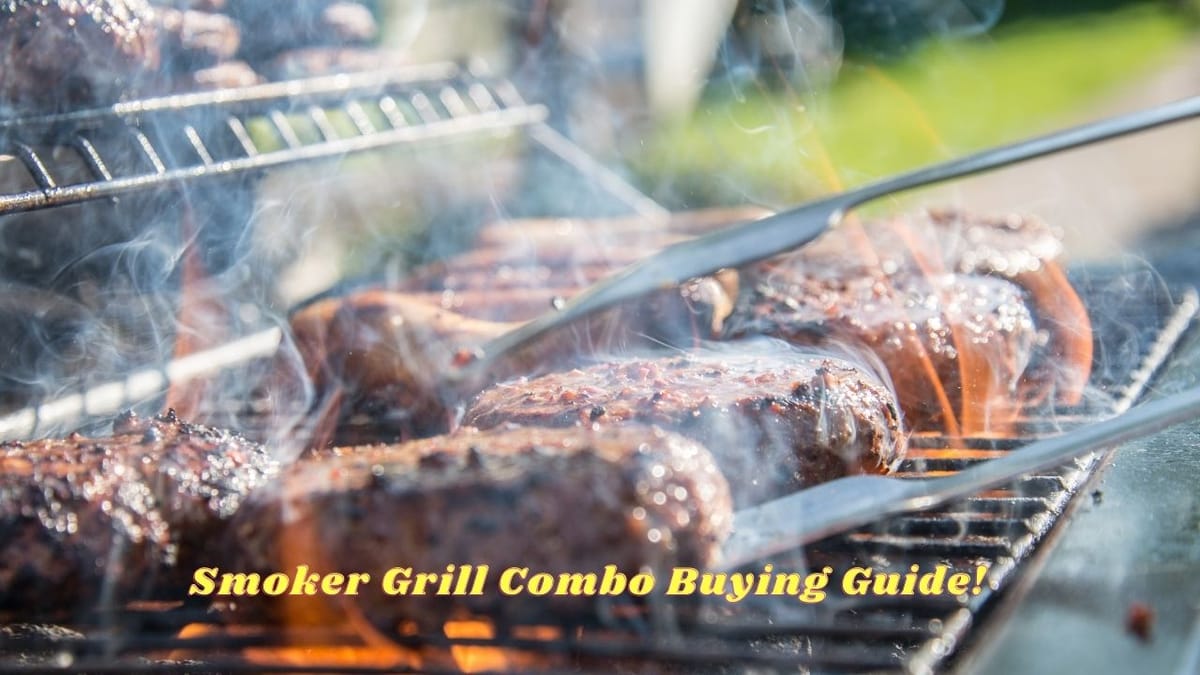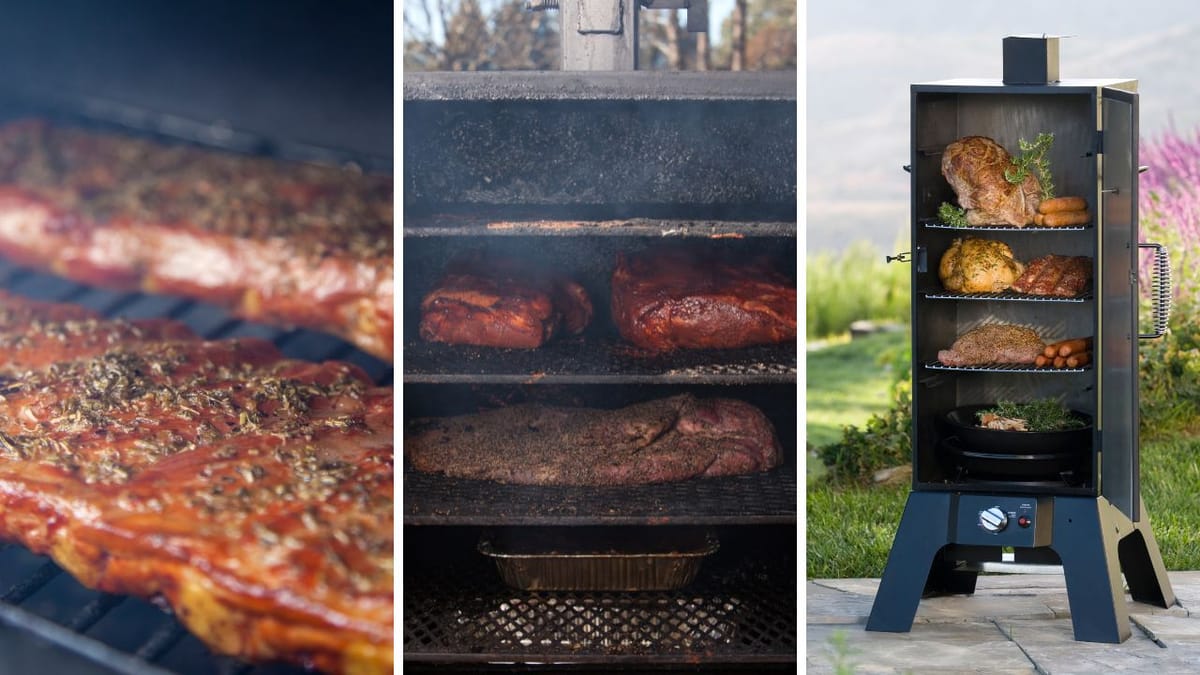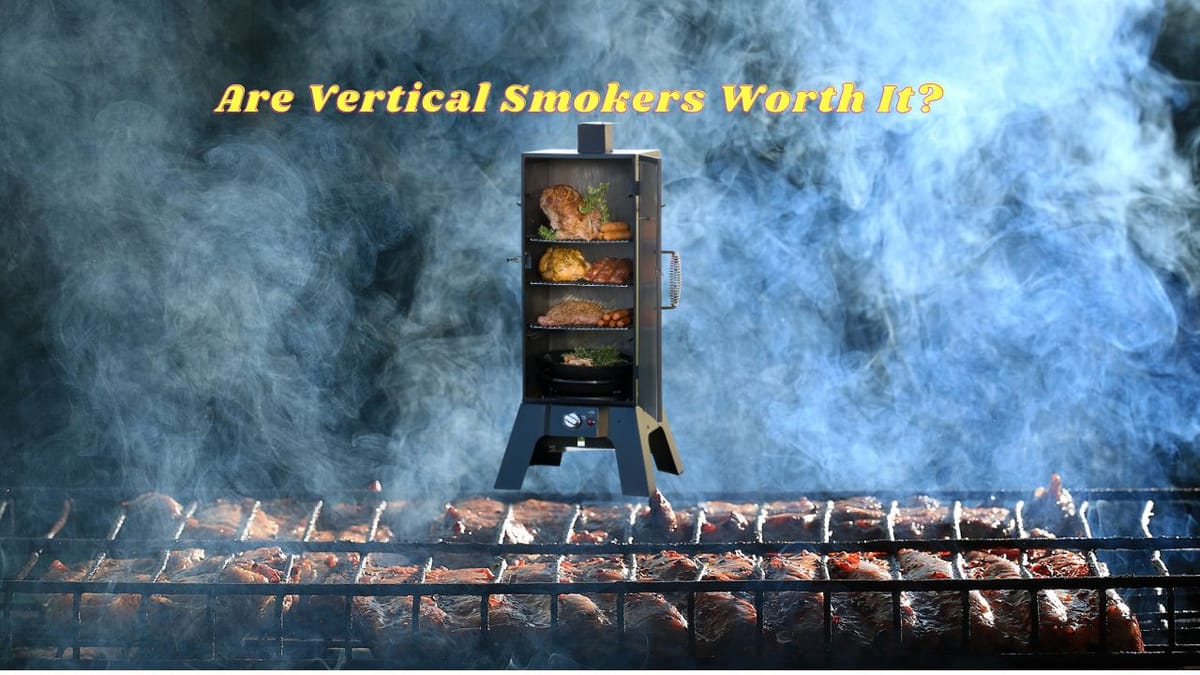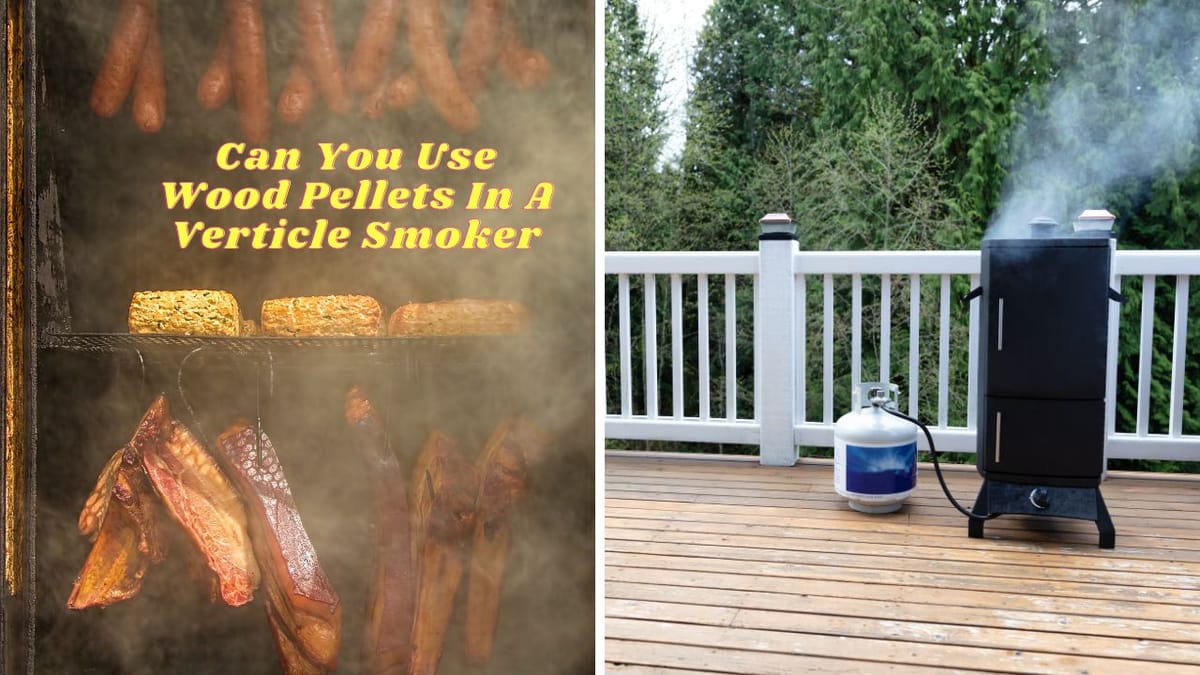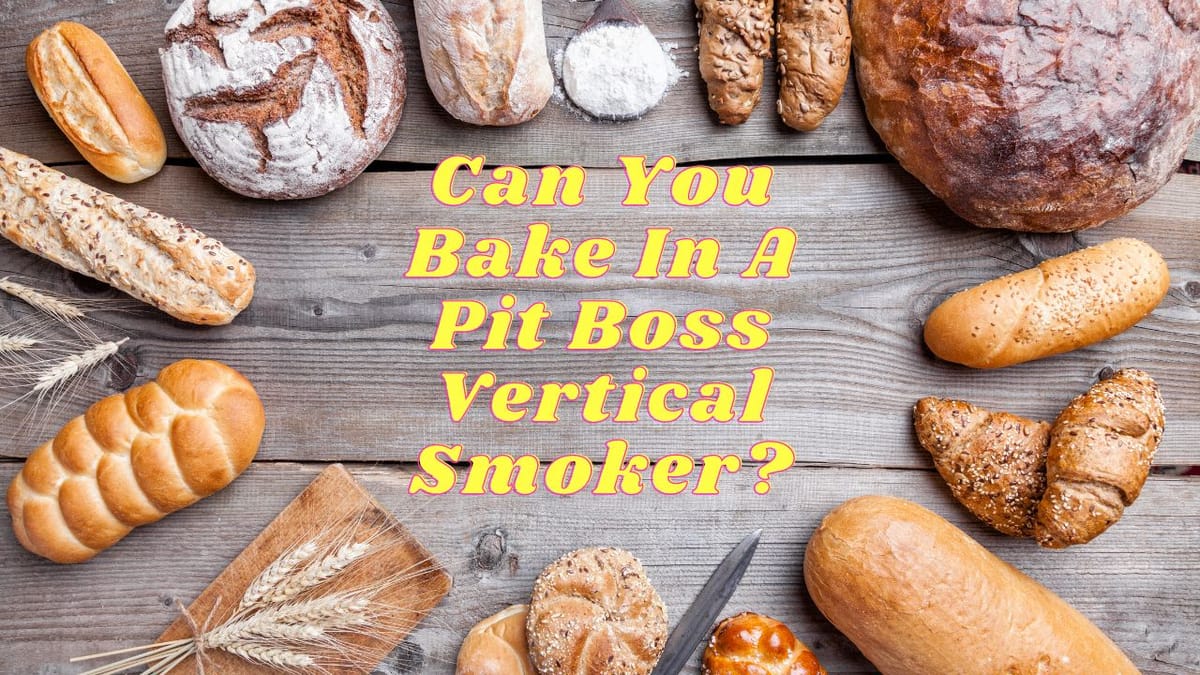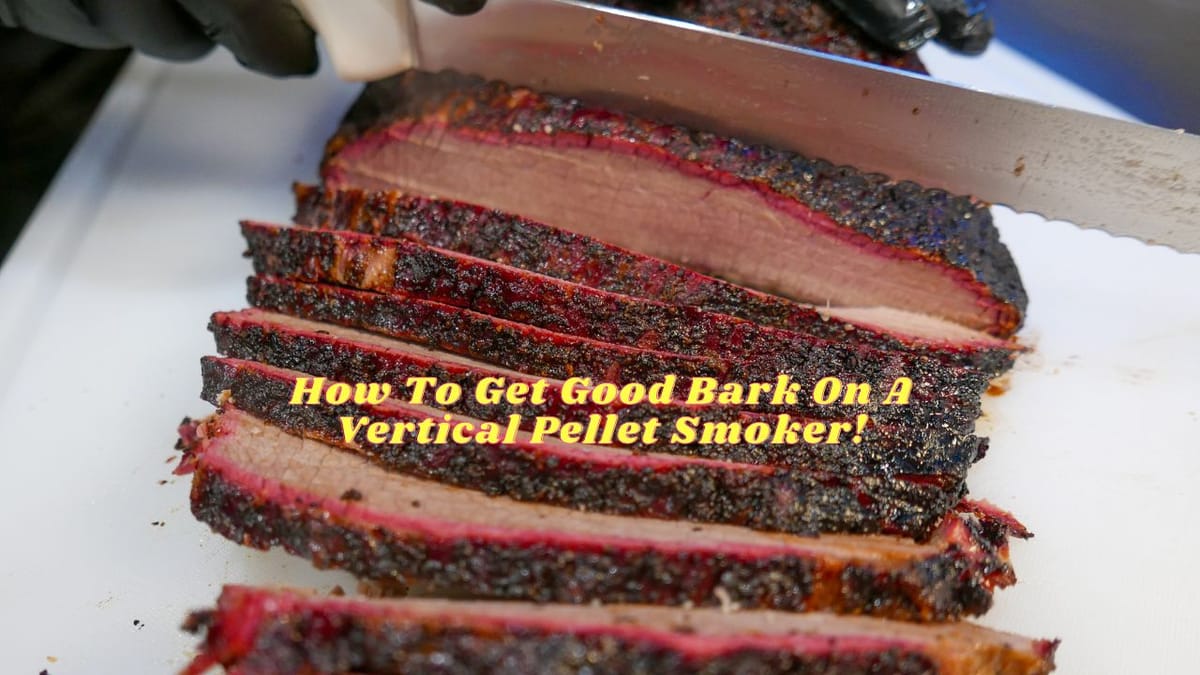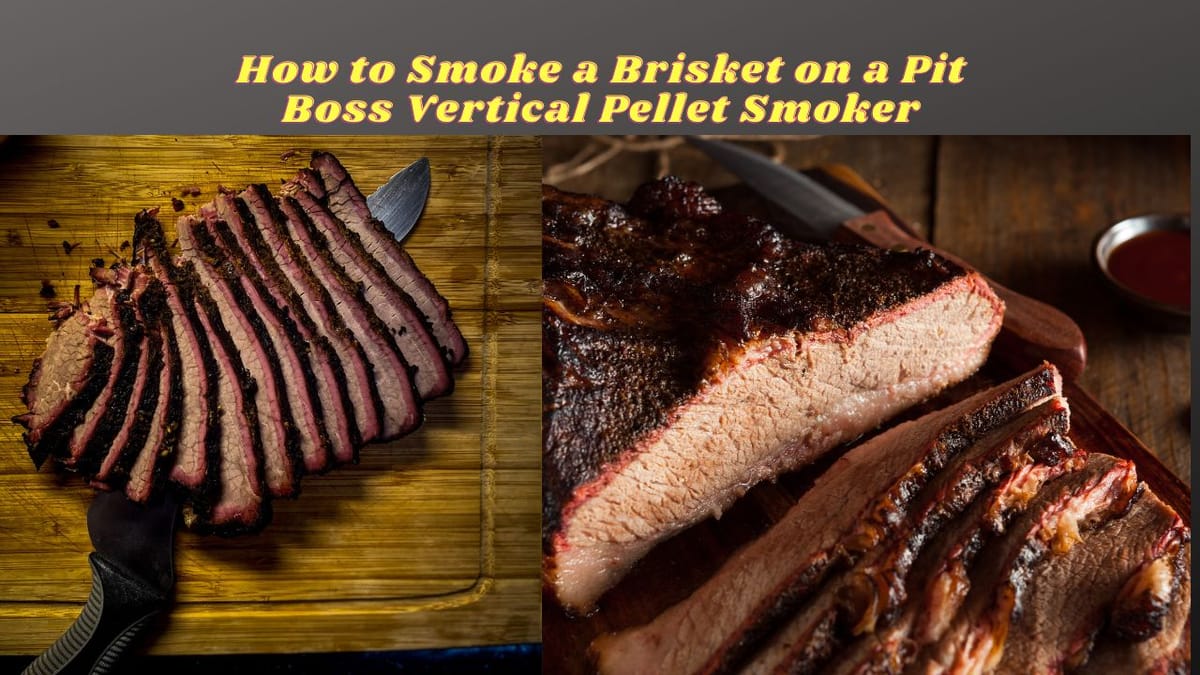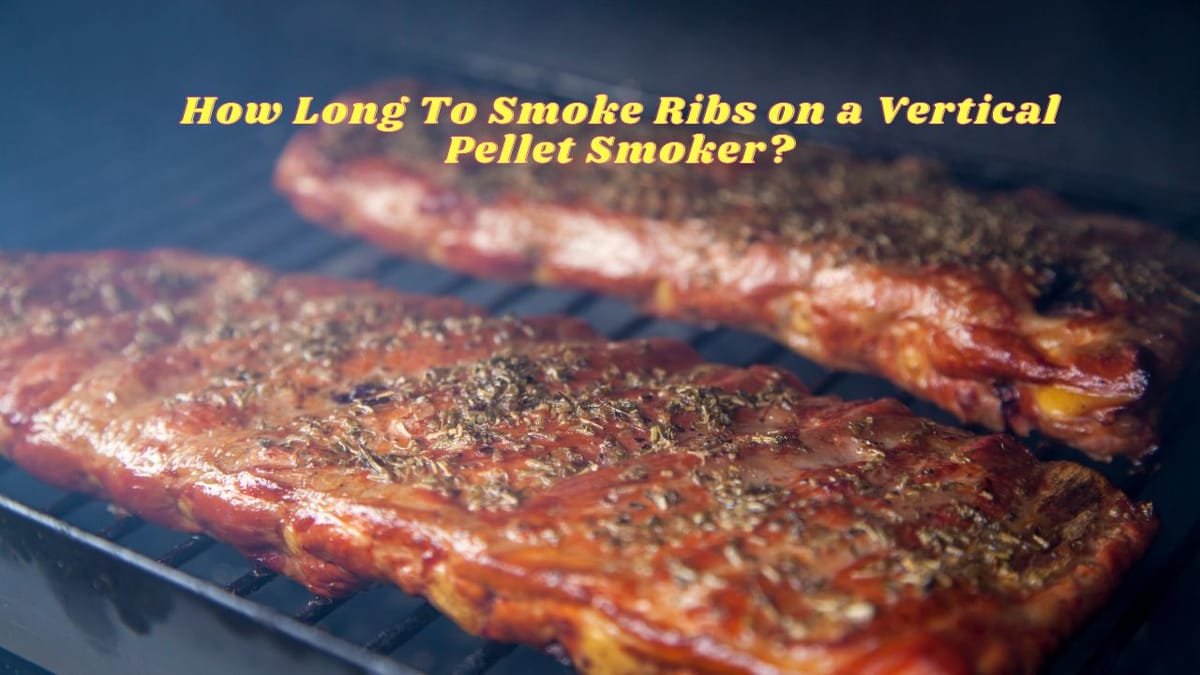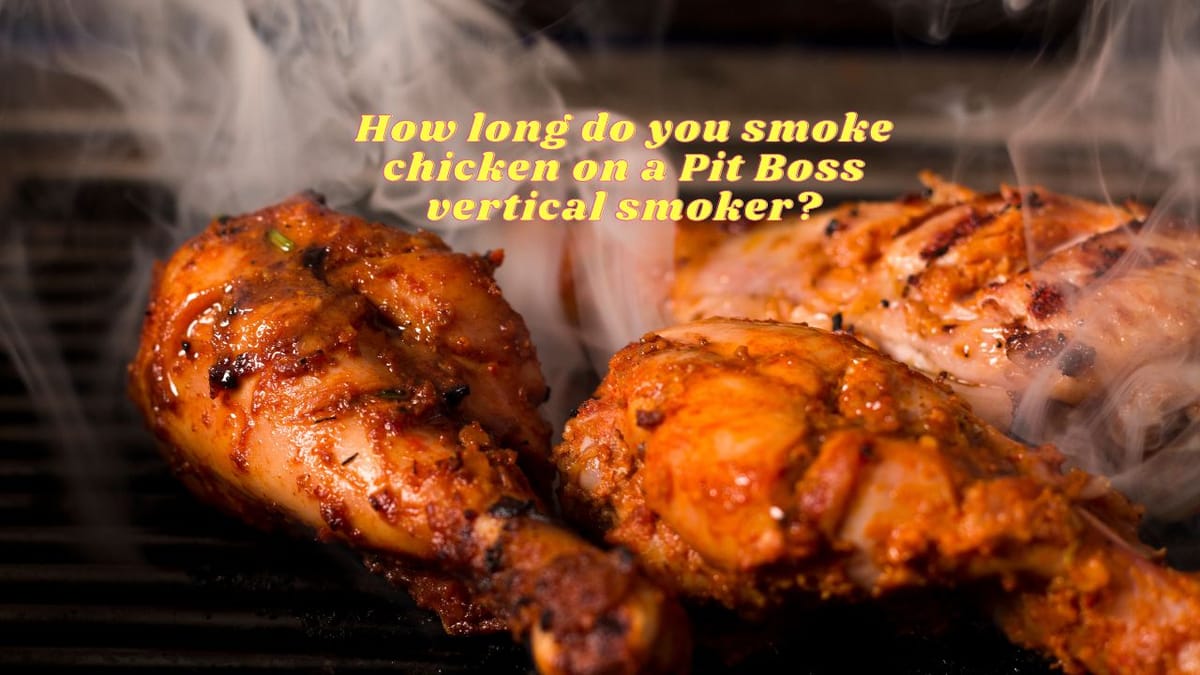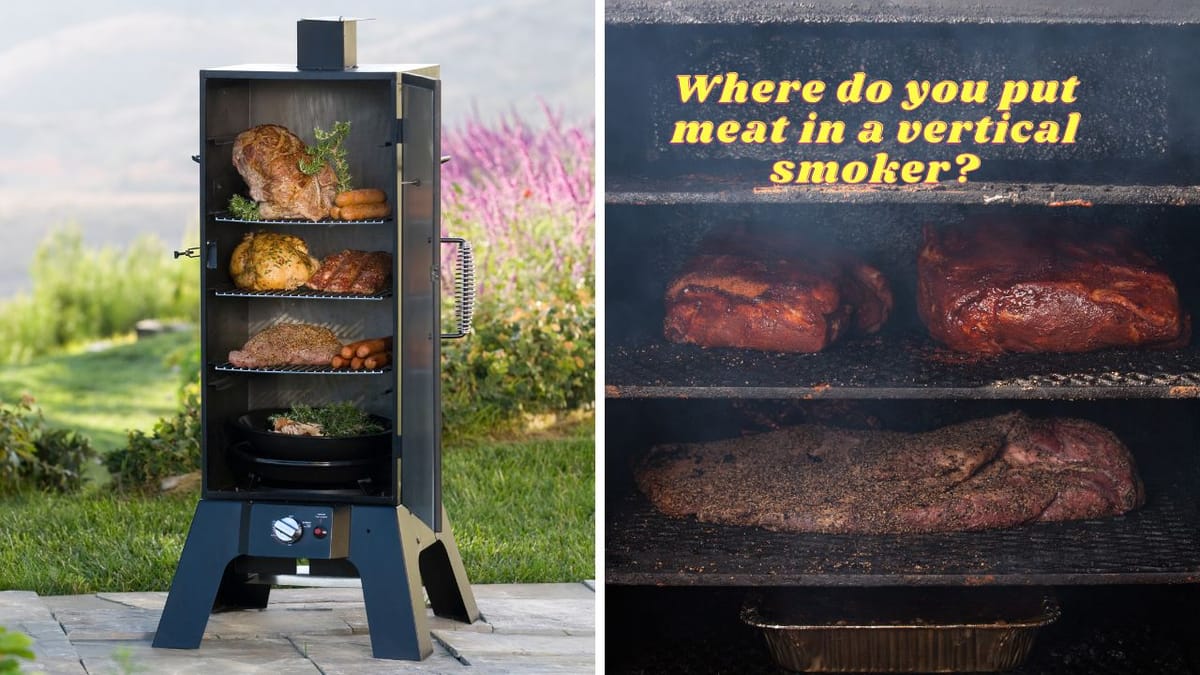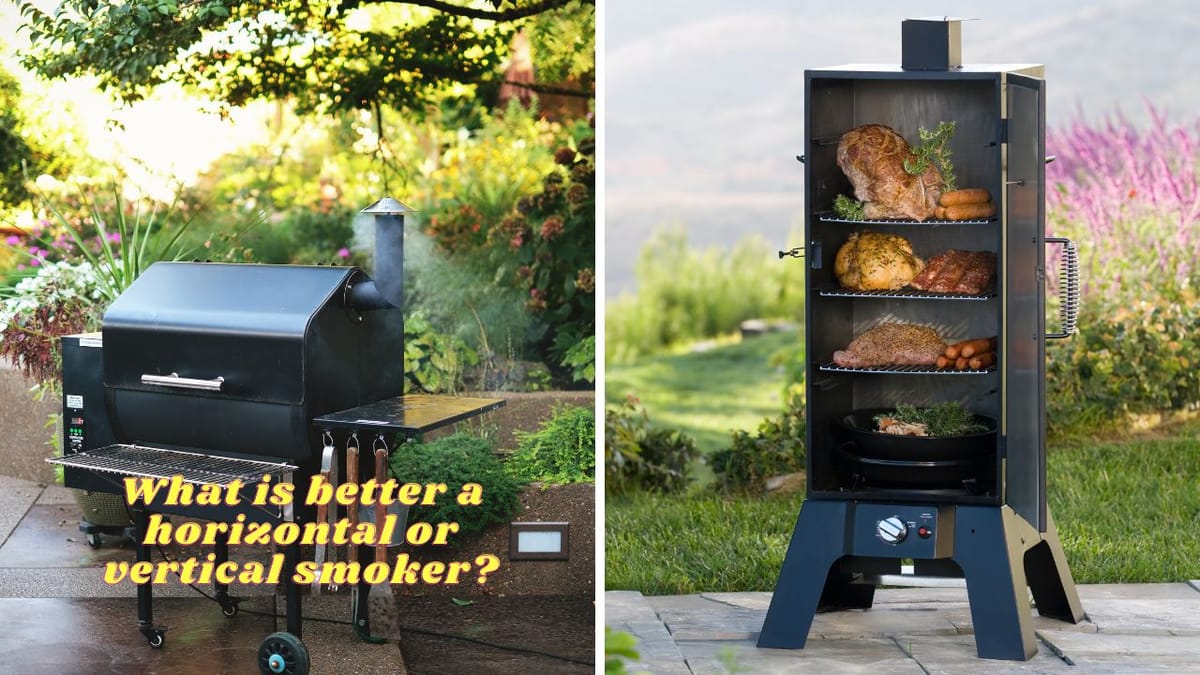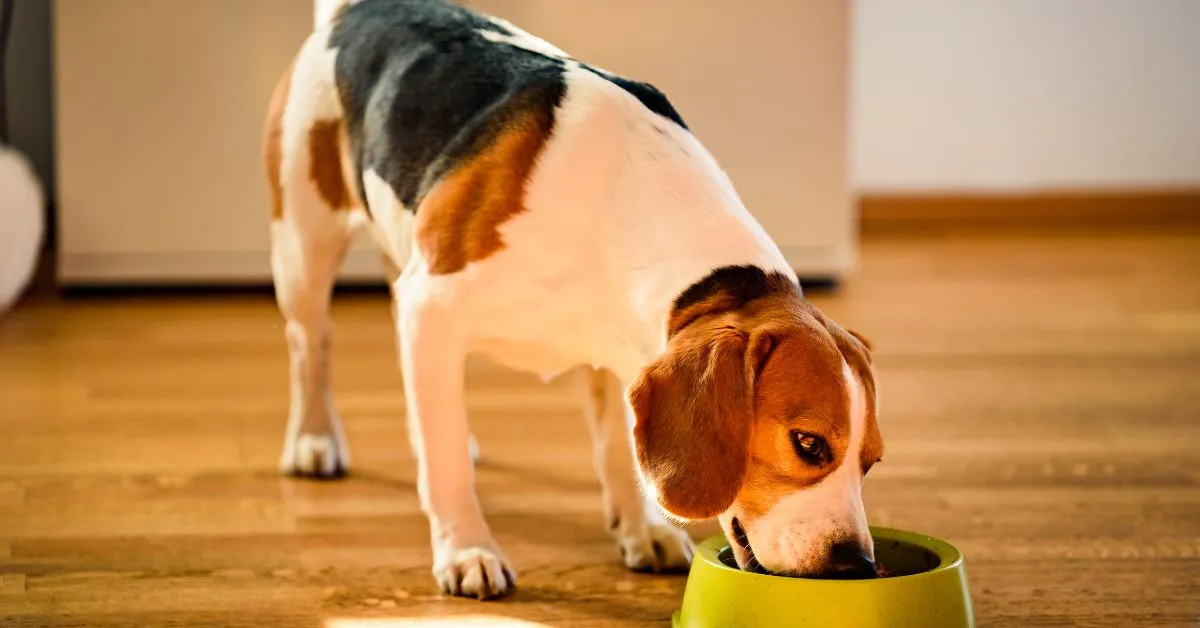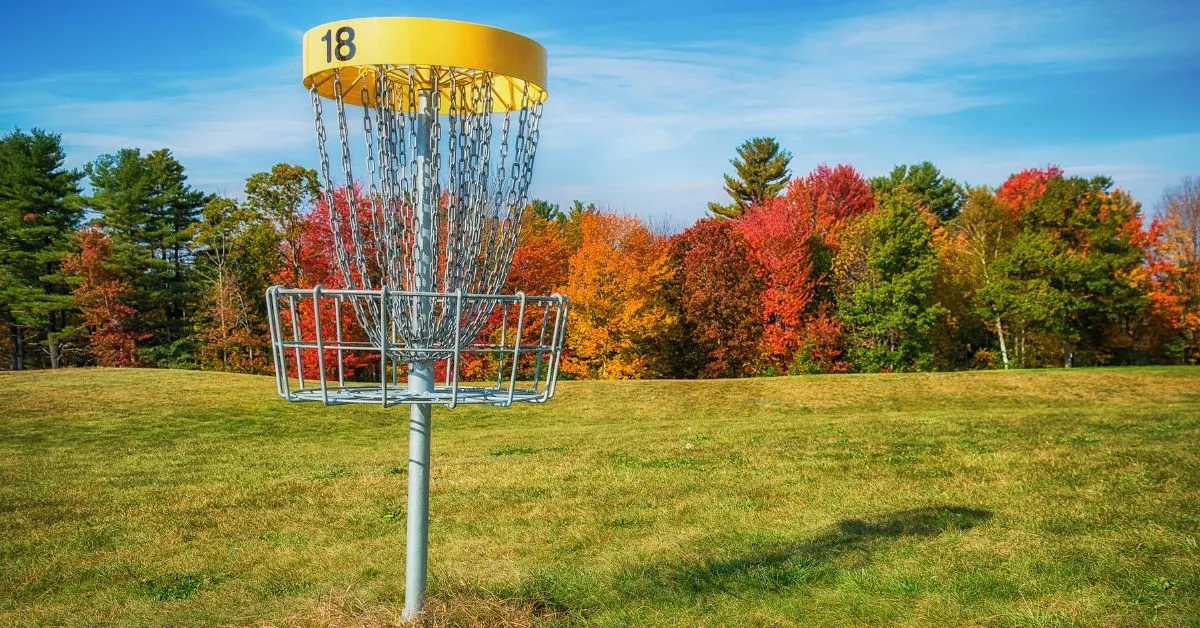Table of Contents
Smoking a brisket to perfection is an art form that combines patience, skill, and the right equipment. The Pit Boss vertical pellet smoker is a popular choice for barbecue enthusiasts looking to achieve that tender, smoky flavor. In this comprehensive guide, we'll walk you through the steps to smoke a brisket that will have your guests coming back for seconds.
Key Takeaways:
- Learn the essential preparation steps for smoking a brisket on a Pit Boss vertical pellet smoker.
- Discover the ideal temperature and cooking times for a perfectly smoked brisket.
- Understand the importance of resting the brisket before serving to ensure maximum flavor and tenderness.
Choosing the Right Brisket
Selecting a high-quality brisket is the first step to smoking success. Look for a brisket with good marbling, as the fat will render down during the cooking process, keeping the meat moist and flavorful. A full packer brisket, which includes both the flat and point cuts, is ideal for smoking. Aim for a brisket that's around 10 to 12 pounds, as this size tends to cook evenly and provides plenty of servings.
When purchasing your brisket, consider the grade of the meat. USDA Prime is the highest quality, with the most marbling, but Choice or Select grades can also yield delicious results if prepared correctly. Remember, the quality of your brisket will greatly influence the final outcome, so choose wisely.
Preparing Your Brisket for the Smoker
Before smoking, your brisket needs some TLC. Start by trimming the excess fat to about 1/4 inch thickness. This allows the smoke to better penetrate the meat while ensuring enough fat remains to keep the brisket juicy. Next, apply a simple but effective rub. Combine kosher salt, black pepper, garlic powder, and onion powder for a classic flavor profile. Coat the brisket evenly with the rub, massaging it into the meat to help the flavors adhere.
Allow the brisket to sit with the rub for at least 30 minutes before smoking. This not only helps the seasoning to set but also lets the meat come closer to room temperature, which promotes more even cooking. Some pitmasters prefer to let their brisket sit overnight in the refrigerator, which can deepen the rub's flavor penetration.
Setting Up Your Pit Boss Smoker
Your Pit Boss vertical pellet smoker is designed for ease of use and consistent temperatures, which are crucial for smoking brisket. Fill the hopper with high-quality hardwood pellets; hickory, mesquite, or a blend designed for beef are excellent choices. Preheat the smoker to 225°F, the sweet spot for low and slow cooking that brisket requires. Make sure the water pan is filled to help maintain humidity, which keeps the brisket moist during the long smoking process.
Once the smoker reaches the desired temperature, it's time to place the brisket inside. Position the brisket fat side up on the middle rack to ensure even heat distribution. The fat will render and baste the meat naturally as it cooks.
Monitoring the Smoke
Consistency is key when smoking a brisket. Maintain a steady temperature of 225°F throughout the cooking process. Use the built-in thermometer on your Pit Boss smoker to monitor the temperature, but consider using a secondary digital meat thermometer to keep an accurate check on the brisket's internal temperature. You're aiming for an internal temperature of around 195°F to 205°F for a perfectly smoked brisket.
Resist the urge to open the smoker frequently, as this can cause temperature fluctuations that may extend the cooking time. Trust the process and let the Pit Boss do its job. If you're using a wireless meat thermometer, you can monitor the brisket's progress without ever opening the door.
The Stall and the Wrap
Brisket is notorious for experiencing "the stall," a period during cooking where the internal temperature plateaus. This is a natural occurrence caused by evaporative cooling. To combat the stall, many pitmasters employ the Texas Crutch method, which involves wrapping the brisket in butcher paper or aluminum foil once it reaches an internal temperature of around 150°F to 160°F.
Wrapping helps to push through the stall by trapping heat and moisture, speeding up the cooking process. Butcher paper is breathable and allows for some smoke penetration, while foil creates a tighter seal that can soften the bark. Choose your wrap based on your preference for bark texture and overall cooking time.
The Final Push to Perfection
After wrapping, return the brisket to the smoker and continue cooking until it reaches the target internal temperature. The brisket is done when it's probe-tender, meaning a meat probe or skewer slides into the thickest part of the brisket with little resistance, similar to inserting it into softened butter. This is usually around 195°F to 205°F.
Once the brisket reaches this stage, it's crucial not to overcook it. Overcooking can dry out the meat and diminish the tender texture you've worked so hard to achieve. Keep a close eye on the temperature during this final phase of smoking.
Resting Your Brisket
Resting the brisket is an often overlooked but essential step in the smoking process. Once removed from the smoker, wrap the brisket in a towel and place it in a cooler (without ice) to rest for at least one hour. This allows the juices to redistribute throughout the meat, resulting in a more succulent brisket.
The resting period also allows the brisket's temperature to stabilize, making it easier to achieve clean slices when it's time to serve. Skipping the rest can lead to a less flavorful and drier brisket, so be patient and give it the time it needs.
Slicing and Serving
The moment of truth has arrived: it's time to slice your smoked brisket. Use a sharp knife and slice against the grain for maximum tenderness. The flat and point have different grain directions, so pay attention as you transition from one section to the other. Aim for slices about 1/4 inch thick for the flat and slightly thicker for the point, where the meat is more marbled.
Serve the brisket on its own or with your favorite barbecue sides. Traditional accompaniments like coleslaw, baked beans, and cornbread complement the rich flavors of the smoked meat. Don't forget to offer some barbecue sauce on the side for those who prefer a saucy experience.
Cleaning and Maintenance
After the feast, it's important to clean and maintain your Pit Boss vertical pellet smoker to ensure it's ready for your next barbecue adventure. Empty the ash from the fire pot, scrape down the grates, and wipe down the interior surfaces. Regular cleaning will prevent buildup and potential flare-ups, keeping your smoker in top condition.
Additionally, inspect the smoker's components, such as the temperature probes and pellet hopper, for any wear or damage. Proper maintenance not only prolongs the life of your smoker but also ensures consistent performance for future smoking sessions.
Summary
Smoking a brisket on a Pit Boss vertical pellet smoker is a rewarding experience that requires attention to detail and patience. From selecting the right brisket to preparing, smoking, and resting it, each step contributes to the final, mouthwatering result. By following this guide, you'll be well on your way to serving up a brisket that's sure to impress.
FAQ Section
How long does it take to smoke a brisket on a Pit Boss vertical pellet smoker?
Smoking a brisket on a Pit Boss vertical pellet smoker typically takes between 12 to 16 hours, depending on the size of the brisket and maintaining a consistent temperature of 225°F.
Do I need to flip my brisket during smoking?
No, you do not need to flip your brisket during smoking. The Pit Boss vertical pellet smoker is designed to circulate heat evenly, so flipping is unnecessary.
Can I use different types of wood pellets for smoking brisket?
Yes, you can experiment with different types of wood pellets to find the flavor profile you prefer. Hickory, mesquite, and oak are popular choices for smoking brisket.
Other Related Articles
